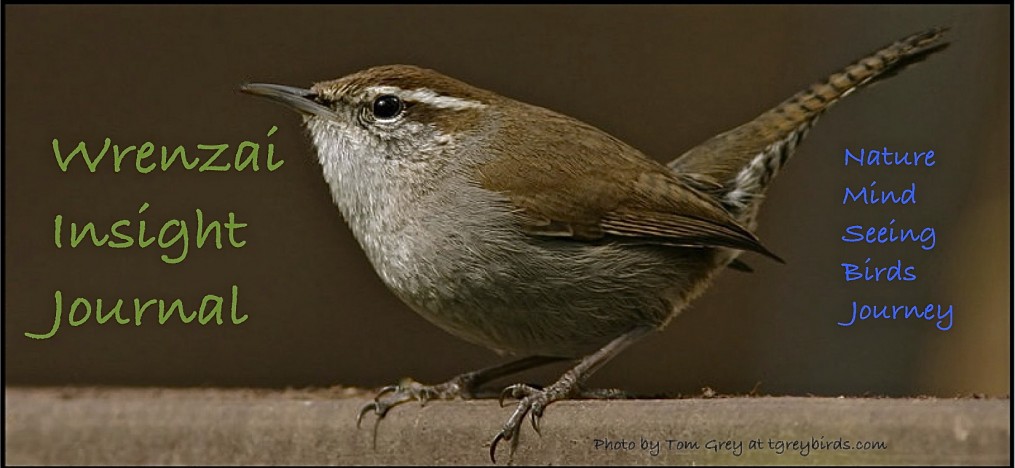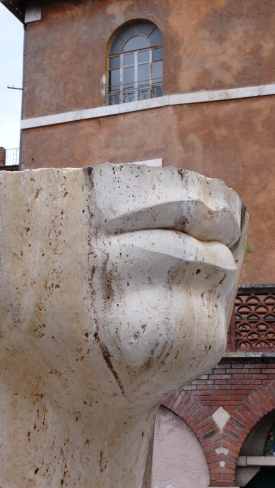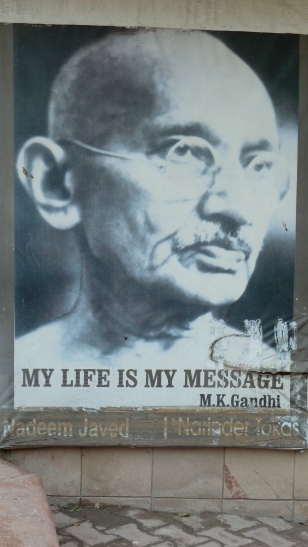I’ve heard from a number of readers about my first post, “Dangerous Thoughts.” Those who commented seemed to have read my purpose in that piece. Others, however, who called or met with me to discuss “Dangerous Thoughts” directly, had issues or suggestions.
First, I’d like to say that, while I do occasionally have the dangerous thoughts I describe in that first post, such thoughts do not dominate my mental activity, nor do they altogether limit my actions, although I have to admit that, because my world view is not the most popular on the planet, I’m sometimes reluctant to share it (yet here I am, exposing my antithetical thoughts in public via Wrenzai Insight Journal).
I’d decided that while I feel certain that most people, particularly aspiring writers, have such potentially limiting dangerous thoughts, I couldn’t assume that they do. Nor did I feel I could exploit others’ dangerous thoughts in order to offer helpful tips on the subject. Thus, I chose to use my own creeping doubts and slippery ivory-tower views as my example. I really didn’t feel I was exposing my deepest, darkest secrets in doing so. I didn’t reveal any murders or breaches of national security. Still, I’ve found such insecurities to be universal. I can say this because I’ve taught writing for over twenty years and seen these creeping doubts in many of the struggling writers who have attended my classes or participated in my writing retreats.
I can live with my dangerous thought confessions, as I believe them to be as common as dreams.
But I found that several who responded took what I wrote literally, as a reflection of my dominant way of thought. And while I knew I was taking that risk, taking that risk has been worth it. One reader commented humorously, thanking me for revealing her own thoughts, which suggests I succeeded in my effort to show that such writing insecurities are universal.
But all this self-reflexivity falls short of my intent here. One close respondent was concerned that I was just as sadly limited by my state of mind as he has always suspected I am. Of course, because his insight into my inner state and into the extent of my experience in these matters is limited, I had to reassure him that, as I say above, the dangerous thoughts I describe in my earlier post do not represent my dominant mode of thinking as I approach the various problems, challenges, and desires of my life. Once I’d clarified this point for him, he reminded me of his own personal approach: Visualizing what you want to do paves the way to doing it.
I have always been one to visualize an outcome, then move in the direction of that outcome in order to make it real. Visualization is as common as leaves, and the idea has been developed in books (see Shakti Gawain’s book Creative Visualization, for one). But the art is not so much in making visualizations real, but in taming the monkeys so they don’t get in the way of the visualization—or in the way of the realization of that visualization. Many people feel troubled by self-doubt, worthlessness, cultural marginalization, and historical oppression, or they lack support, belief, or material resources.
If a we think that a black man, fresh off death row, found innocent after twenty years of a crime for which he was wrongly convicted, can wake up on the first morning of his release and visualize all he wants to do that day and actually make it all real and that that man can do that as readily as someone who has had years of practice and success in building competence and self-confidence along the way—then we are out of touch with reality. There’s no comparison. The “ex-con” is going to have one hell of a time making it in the world, even if he never committed a crime in his life (in Texas, one out of seven on death row has been found to have been wrongly convicted). The thoughts that are likely to dominate this man’s mind might sound like this: “True, I’ve been proven innocent, I’ve been spared execution by state injection, but having spent twenty years on the Row, aren’t I still an ex-con? Aren’t I worthless for having been treated as worthless for twenty years?” It’s hard for a man to remember his self-worth, social viability, and democratic equality when for twenty years the great and powerful Wizard of the State has treated him as worthless. This man has a monkey in his mind the size of the Empire State Building to stare down and put to bed.
It’s seems rather simplistic to say that all we have to do is get up in the morning and visualize what we intend to do and, voila, it’s as good as done. It’s simply not that simple for some people. They have complexes, blockages, and negative scripts running through the sound processing centers of their minds, and these complexes, blockages, and negative scripts are none other than those aforementioned monkeys playing havoc with our minds, eclipsing our best thoughts and undermining our best actions.
Another close respondent reminded me of the Four Agreements. The idea is that if we focus on, and strive to live by, these Four Agreements, the monkeys will have no space in our minds to make a ruckus. They’ll give up and go obediently to bed as the saintly Four Agreements rise to conduct catechism on the mind’s thoughts. Here are the Four Agreements:
Be Impeccable with your Word: Speak with integrity. Say only what you mean. Avoid using the Word to speak against yourself or to gossip about others. Use the power of your Word in the direction of truth and love.
Don’t Take Anything Personally: Nothing others do is because of you. What others say and do is a projection of their own reality, their own dream. When you are immune to the opinions and actions of others, you won’t be the victim of needless suffering.
Don’t Make Assumptions: Find the courage to ask questions and to express what you really want. Communicate with others as clearly as you can to avoid misunderstandings, sadness, and drama. With just this one agreement, you can completely transform your life.
Always Do Your Best: Your best is going to change from moment to moment; it will be different when you are healthy as opposed to sick. Under any circumstance, simply do your best, and you will avoid self-judgment, self-abuse, and regret (from ToltecSpirit.com).
I find the Four Agreements to be rock solid—true, valid, and potent. They’re hard to argue with. But what both Visualization and the Four Agreements don’t take into account is the chaos, sturm und drang, and compost of creativity that must be present in the writer’s life in order for the writer to produce the new and unexpected, the universally felt or experienced. For example, how can the mystery writer describe a murder without imagining the act, in detail, in advance of writing? Many ideas for art and literature have arrived on the crest of a primal wave of passion, such as when a woman imagines murdering her husband then writes a novel about it instead. How can scriptwriters and movie-makers create such violent films without visualizing the violence before hand? There’s a wildness that must be groomed, a dangerous but realistic and productive wildness that provides fodder for depictions of the worst, as well as the best, of what it is to be human. Strict visualization of monetary outcomes and purist actualization of a few agreements may make the mind too square or narrow to allow for wild expressions of beauty and meaning. Artists—even scientists, I’d suggest—can’t afford to be too strict of thought.
While Visualization and the Four Agreements are excellent thinking tools with which to become more productive, successful, or enlightened, if we occupy our minds too much of the time with strict principles, we may become rigid in our thinking, which, in turn, may leave little room for chaos, compost, creativity, and growth.








